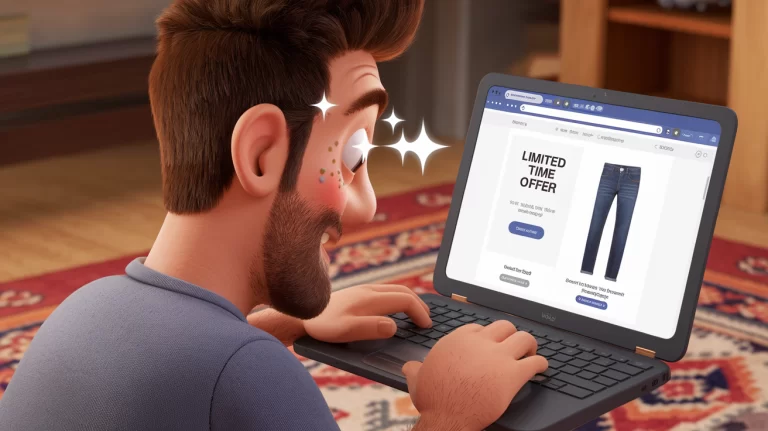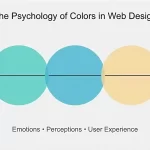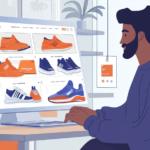Hey there, savvy consumer! Ever felt a twinge of possessiveness over your favorite coffee mug, even though it’s just a mass-produced item? Or maybe you’ve experienced a surge of pride when someone compliments your phone case, as if you personally designed it? Well, my friend, you’ve just dipped your toes into the fascinating world of psychological ownership. Get ready, because we’re about to dive deep into this mind-bending concept that’s shaping our buying habits, brand loyalties, and even our relationship with the sharing economy.
The “Mine” Field: Understanding Psychological Ownership
Let’s start with a quick reality check: psychological ownership isn’t about legal rights or actual possession. It’s that warm, fuzzy feeling you get when you think, “This is mine!” even if it’s not really yours in the eyes of the law. It’s like that unspoken rule that the armrest belongs to the person in the middle seat on an airplane – we all just kind of agree on it, right?
But here’s where it gets interesting: this feeling can extend to brands, ideas, and even experiences. It’s not just about physical stuff anymore, folks!
Fun Fact: Did you know that the IKEA effect is a real thing? People tend to value items they’ve assembled themselves more than pre-assembled identical products. So, the next time you’re cursing at those cryptic IKEA instructions, remember – you’re not just building furniture, you’re building a bond!
The Three Amigos of Psychological Ownership
Now, let’s break down the three key ingredients that cook up this ownership stew:
-
Control: The more you can manipulate or influence something, the more you feel it’s yours. It’s like being the DJ at a party – suddenly, you own the vibe!
-
Intimate Knowledge: The more you know about something, the closer you feel to it. It’s why some people can recite entire Wikipedia pages about their favorite TV shows.
-
Self-Investment: The more time, energy, or resources you pour into something, the more attached you become. It’s the reason why your homemade sourdough bread tastes better than any store-bought loaf (even if it’s a bit… let’s say, “rustic”).
From Ownership to Loyalty: A Love Story
Here’s where things get juicy for all you marketing enthusiasts out there. Psychological ownership is like a secret sauce for brand loyalty. When consumers feel a sense of ownership over a brand, they’re more likely to:
-
Defend it against criticism (hello, Apple vs. Android debates!)
-
Recommend it to others (aka become walking, talking billboards)
-
Stick with it through thick and thin (looking at you, die-hard sports fans)
Pro Tip: Want to foster psychological ownership for your brand? Try involving customers in product development or decision-making processes. It’s like giving them a backstage pass to your brand’s concert!
The Sharing Economy: A Plot Twist in Our Ownership Tale
Now, here’s where our story takes an unexpected turn. Enter the sharing economy, stage left. Suddenly, we’re Uber-ing instead of buying cars, Airbnb-ing instead of booking hotels, and renting designer clothes instead of splurging on a new wardrobe.
This shift is shaking up our traditional notions of ownership faster than you can say “subscription model.” But don’t worry, psychological ownership isn’t going anywhere – it’s just… evolving.
Reality Check: While the sharing economy might seem like a threat to psychological ownership, it’s actually creating new opportunities. Companies are now focusing on creating experiences and communities that users can feel a part of, rather than just selling products.
Navigating the Ownership Minefield: Pitfalls and Opportunities
Alright, let’s get real for a second. While psychological ownership can be a powerful tool, it’s not all rainbows and unicorns. Here are some potential pitfalls to watch out for:
-
Overattachment: Ever met someone who’s way too invested in a brand? Yeah, it can get a bit… intense.
-
Resistance to Change: When people feel strong ownership, they might resist necessary updates or improvements. (I’m looking at you, folks still using Windows XP!)
-
Exclusivity: Strong feelings of ownership can sometimes lead to gatekeeping or exclusivity, which isn’t always healthy for a brand or community.
But fear not! With great power comes great responsibility, and understanding psychological ownership gives us the tools to navigate these challenges.
The Future of Ownership: Crystal Ball Time
As we hurtle towards an increasingly digital future, the concept of psychological ownership is evolving faster than you can say “NFT.” (That’s Non-Fungible Token for those of you who haven’t fallen down that rabbit hole yet).
We’re seeing new frontiers of ownership in:
-
Digital goods (Anyone want to buy a virtual outfit for your avatar?)
-
Experiences (Instagram-worthy moments, anyone?)
-
Ideas and content (Hello, Creator Economy!)
The key for brands moving forward will be to create that sense of ownership in a world where physical possession is becoming less relevant. It’s like trying to bottle a feeling – tricky, but not impossible!
Wrapping It Up: Your Ownership Adventure Awaits!
So, there you have it, folks – a whirlwind tour through the fascinating world of psychological ownership. From that coffee mug you can’t bear to part with, to the brand loyalties that define you, to the sharing economy shaking things up, psychological ownership is everywhere.
The next time you’re making a purchase decision or interacting with a brand, take a moment to consider: Do you feel a sense of ownership? And more importantly, should you?
Remember, in the grand game of consumer psychology, awareness is your superpower. Use it wisely, and may the odds of making savvy, psychologically-informed decisions be ever in your favor!









